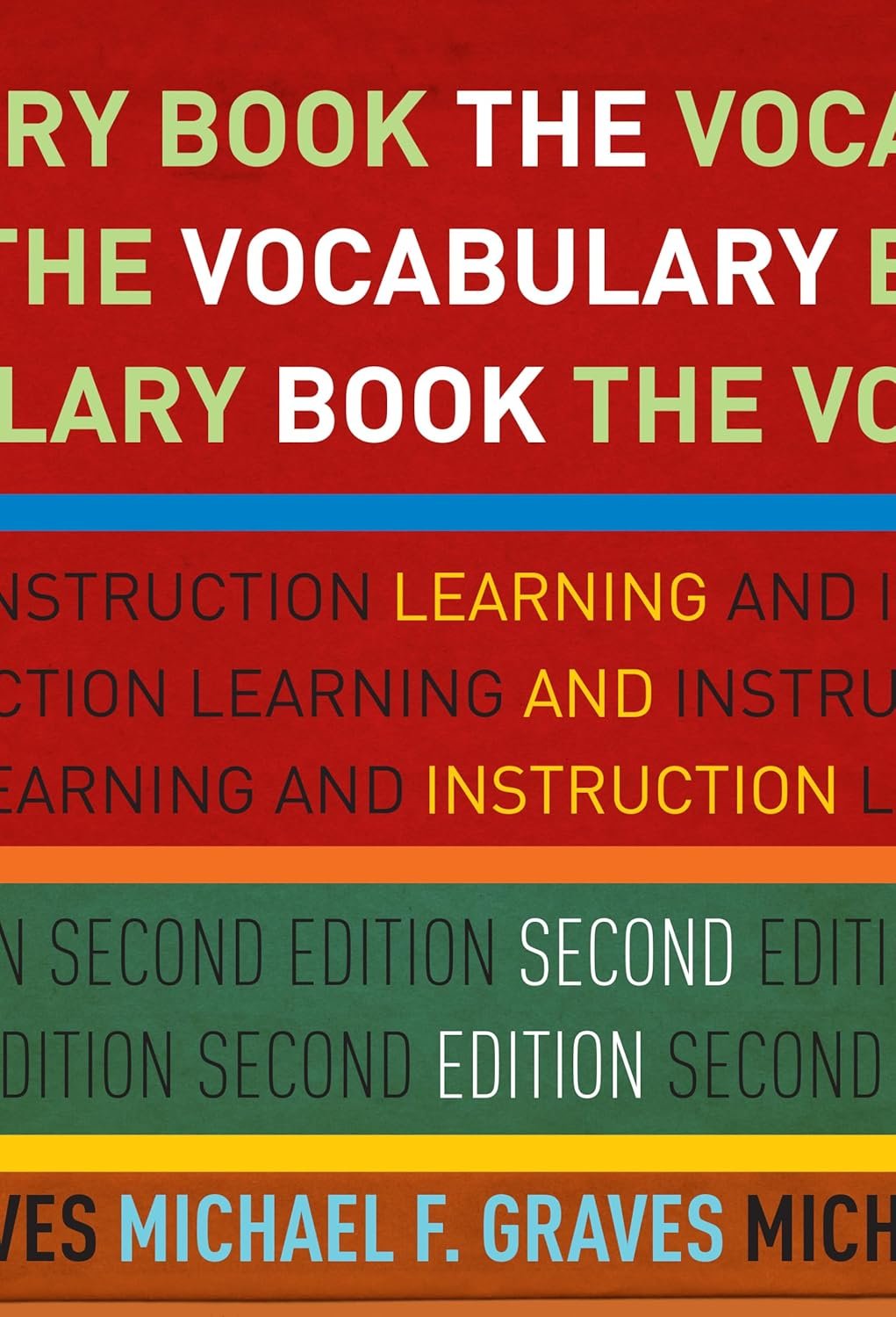Some of our favorite resources and references:
-

The Ramped Up Read Aloud: What to Notice as You Turn the Page by Maria Walther
Maria Walther shares two page read aloud experiences for 101 picture books that tune you into what to notice, say, and wonder in order to bolster students’ literacy exponentially.
-

Vocabulary Connections by Mary Ehrenworth
With a thoughtful progression across Literary Vocabulary, Word Consciousness, and Domain Vocabulary, Ehrenworth offers dozens of use-tomorrow lessons designed to be easily replicated with multiple texts, in a variety of learning experiences.
-

More Ramped Up Read Alouds: Building Knowledge and Boosting Comprehension by Maria Walther
This must-have resource for K-5 teachers, librarians, schools, and districts goes beyond the basics. It empowers educators to elevate their read alouds, offering strategies to broaden students’ content knowledge, expand vocabulary, and boost listening comprehension.
-

Big Words for Young Readers by Heidi Anne Mesmer
Phonics instruction shouldn’t end when students can decode short words. From an early age, they also need to be able to decode “big words”―words with multiple syllables (sound units) and morphemes (meaning units)―to read proficiently. The key is to teach them systematically and explicitly, in developmentally appropriate ways.
-

Read Alouds for All Learners by Molly Ness
Molly Ness, supported by current research and personal experiences, demonstrates the sobering effect an absence of read alouds in classrooms has on preK–8 students’ comprehension skills. She provides intentional directions on planning and implementing a read-aloud routine that supports young learners’ literacy development, content-area knowledge, social-emotional learning, and academic achievement.
-

Making Words Stick by Molly Ness & Katie Pace Miles
This book explains the process by which readers embed words into their long-term memories, and the instruction necessary to help K–5 students do just that.
-

The Vocabulary Book: Learning and Instruction by Michael Graves
This extensively revised and expanded edition of the bestselling text and teaching resource incorporates the newest research in vocabulary learning and instruction into a complete and balanced program for all K–12 students, from those who struggle in school to those who excel. Literacy expert Michael Graves presents a four-pronged vocabulary program that he has developed and honed for over 30 years.
-

Bringing Words to Life: Robust Vocabulary Instruction by Beck, McKeown & Kucan
Grounded in research, the book explains how to select words for instruction, introduce their meanings, and create engaging learning activities that promote both word knowledge and reading comprehension. The authors are trusted experts who draw on extensive experience in diverse classrooms and schools.
-

No More ‘Look Up the List’ Vocabulary Instruction by Cobb & Blachowicz
No More “Look Up the List” Vocabulary Instruction is your guide to engaging, research-proven practices for teaching words effectively. Practitioner Charlene Cobb and researcher Camille Blachowicz share why old-fashioned methods don’t work, what the research shows does work, and how to put the research into action.
-

Teaching Words and How They Work: Small Changes for Big Vocabulary Results by Elfrieda H. Hiebert
This book, written by an award-winning authority on reading instruction, shows teachers how to make small changes to teach more words and also how words work. Many of these small changes involve enrichments to existing vocabulary practices, such as word walls and conversations with students.
-

A Teacher’s Guide to Vocabulary Development Across the Day by Tanya S. Wright
You probably know that having young children memorize new words or relegating vocabulary instruction to one time of day is not the way to go, but you may not know what else to do to support students’ vocabulary development. In this guide, Tanya Wright shows you how to make word learning more meaningful and engaging as you incorporate teaching about words across the day.
-

The Vocabulary Playbook: Learning Words That Matter by Fisher & Frey
Concepts, conversation, collaboration―vocabulary instruction is so much more than lists of words. More is more when it comes to students’ vocabulary knowledge, and in The Vocabulary Playbook, educators in K-12 get ideas for transforming all children into curious, capable word learners. The key? Put away the word-list mindset, and embrace active modeling, peer work, and independent practice.



